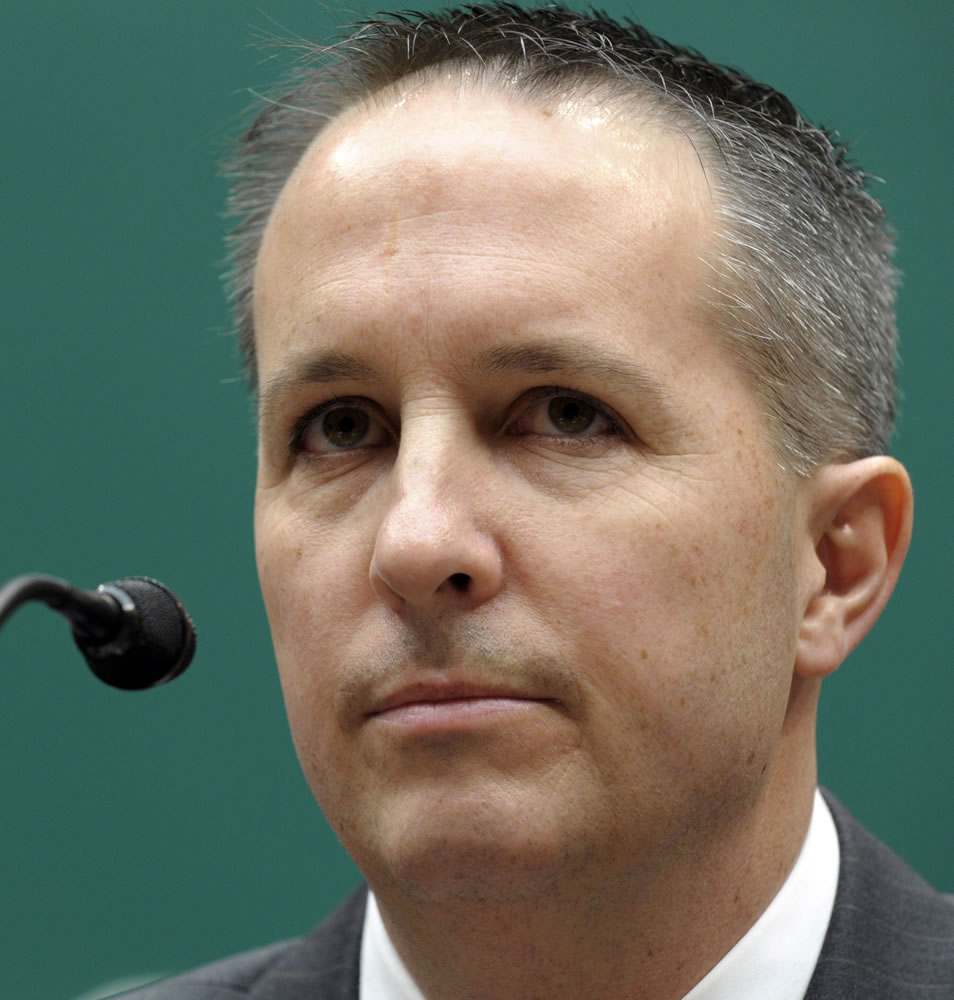BOSTON — Mold and bacteria were in the air and on workers’ gloved fingertips. Pharmacists used expired ingredients, didn’t properly sterilize them and failed to test drugs for purity before sending them to hospitals and pain clinics. Employees falsified logs to make it look as if the so-called clean rooms had been disinfected.
Federal prosecutors leveled those allegations in bringing charges Wednesday against 14 former owners or employees of a Massachusetts pharmacy in connection with a nationwide meningitis outbreak that killed 64 people.
U.S. Attorney Carmen Ortiz called it the biggest criminal case ever brought in the U.S. over contaminated medicine.
The 2012 outbreak was traced to tainted drug injections manufactured by the now-closed New England Compounding Center of Framingham.
Barry Cadden, a co-founder of the business, and Glenn Adam Chin, a supervisory pharmacist, were slapped with the most serious charges, accused in the racketeering indictment of causing the deaths of 25 patients in seven states by acting with “wanton and willful disregard” of the risks.
The other defendants were charged with such crimes as fraud and interstate sale of adulterated drugs.
Ortiz said NECC was “filthy” and failed to comply with even basic health standards, and employees knew it.
“Production and profit were prioritized over safety,” she said.
More than 750 people in 20 states fell ill — about half of them with a rare fungal form of meningitis, the rest with joint or spinal infections — after getting steroid injections, mostly for back pain. Sixty-four died.
In reaction, Congress last year increased federal oversight of so-called compounding pharmacies like NECC, which custom-mix medications in bulk and supply them directly to hospitals and doctors.
Cadden’s lawyer, Bruce Singal, complained that prosecutors are trying to turn a “tragic accident” into a federal crime.
“Not every accident, and not every tragedy, are caused by criminal conduct,” Singal state in a statement.
Chin’s lawyer, Stephen Weymouth, said he was stunned that prosecutors charged his client with second-degree murder under the racketeering law.
“He feels hugely remorseful for everything that’s happened — for the injuries and the deaths — but he never intended to cause harm to anybody,” Weymouth said. “It seems to be a bit of an overreach.”
Lawyers for the other defendants did not immediately return calls.
Cadden and Chin were ordered jailed for a bail hearing today. Gregory Conigliaro, who founded the business in 1988 with Cadden, his brother-in-law, was also among those arrested.
The federal law used against Cadden and Chin, the Racketeer Influenced and Corrupt Organizations Act, was originally aimed at organized crime but has been applied in white-collar prosecutions and many other kinds of cases over the years.
Jeffrey Grell, a former prosecutor in Minnesota who is an expert on RICO, said it is unusual to use the law to prosecute a pharmaceutical company.
But “here, you’ve got such a close link between the meningitis and the malfeasance at the laboratory, I can totally understand why the U.S. Attorney’s Office is using it in this circumstance,” he said.



